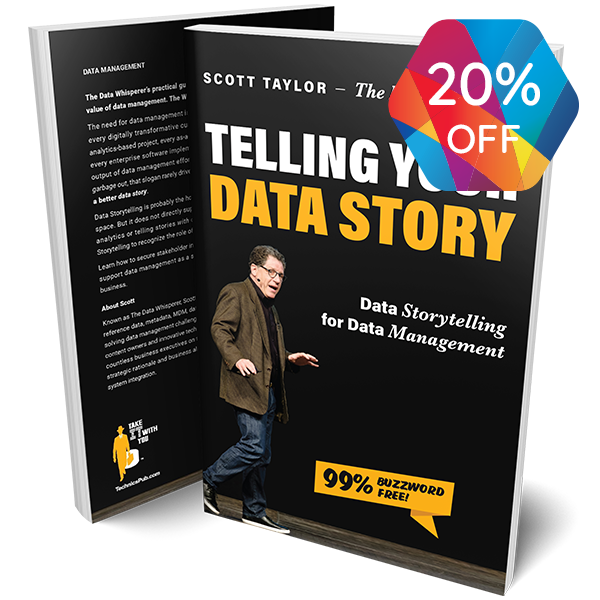The Story Of Foundational Data
If you have a problem related to technology, it is usually associated with three things: hardware, software (and I’ll include any form of coding in there), and data.
Before you start yelling about “people and culture and process,” just go with me on this.
Let’s say your CEO's quarterly reports aren’t correct, or your customer experience is in shambles. Where is the problem? Is it the hardware? Probably not. You have a reliable and secure cloud vendor. Is it the software? Doubtful. Commercial software pretty much does what it is supposed to do. Is it the data? Most likely. And within the data, is it the analytics? Sometimes. But analytics in production is usually well-tested. Where is the problem? The root cause tends to be in the underlying data representing the structure of the output: master data, reference data, metadata - all in the scope of data management. If your customer hierarchy is wrong, your reports are untrustworthy, and your Customer Experience is a mess. If there is a data breach, odds are someone, somehow, falsified their identity. Authenticated identity is a crucial benefit of highly-structured data.
When your data is good, it is very, very good, and when it is bad, it is horrid
The classic disruptors in every industry, Airbnb, Uber, Amazon, for example, all thrive on well-managed data. Their services fail without the master, reference, and metadata that fuels them. When you tap your thumb on the phone, a car arrives. When you search for a product, you may be served with new alternatives. It isn’t magic. Of course, it takes systems, but without the foundational data, it will not work. How do you start to articulate the value of this kind of data? Here are a few ideas:
- It is a common language for your organization. A common language for common definitions for the most important relationships of your business: customers, vendors, partners, prospects, and your brands, products, assets, and services
- It is about rows and columns. If you think about a nifty data visualization technique, let’s call it a “table” or a basic chart. People are good at columns, but they are not good at rows. That is the master data part—all those rows. The data that makes up the rows is what the data in the columns is about. Adding columns is easy; aligning rows is hard.
- It is about truth and meaning. It isn’t chicken or egg here. It is egg and omelet. Data is the primary ingredient for analytics. You have to determine the truth in your data before you can derive any meaning from analytics.
- It is about caring for your relationships. How do you grow and improve and protect your business? And I know there are some other things that people do in their business, but if you think about it growing, improving, and protecting your business, that is most of what you do. Structured data can help you do all three at the same time.
- It is about making good decisions. That’s all businesspeople want to do is make good decisions. But good decisions made on bad data are just bad decisions you don’t know about yet.
The need for data management has never been greater. The convergence of social, mobility, cloud, and information patterns are driving new business scenarios within the macro-trend of digital transformation.
This transformation unlocks untapped value, innovative experiences, and disruptive business models. In a digitally-transformed organization, data moves seamlessly from workflow to workflow and between external partners. Users can spend their time improving their relationship experience rather than questioning the data.
Imagine that!
_____________________
Excerpted with permission from Technics Publications from TELLING YOUR DATA STORY – Data Storytelling for Data Management by Scott Taylor, The Data Whisperer, of MetaMeta Consulting. The entire book is available at the links below.
- Buy from Technics Publications
- Buy from Amazon US
- Buy from Amazon UK




